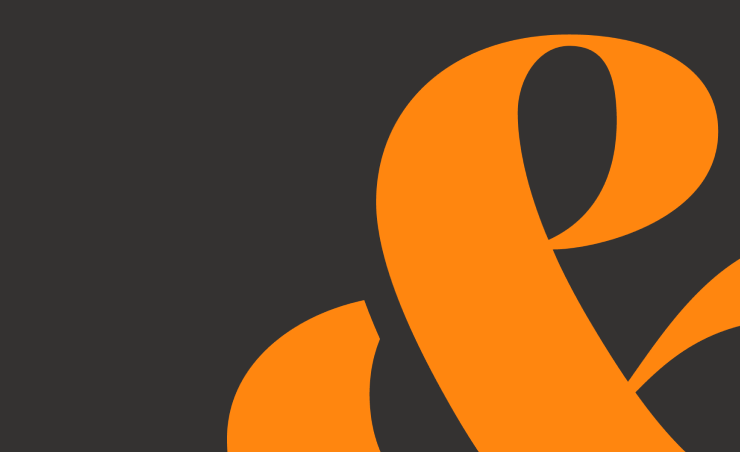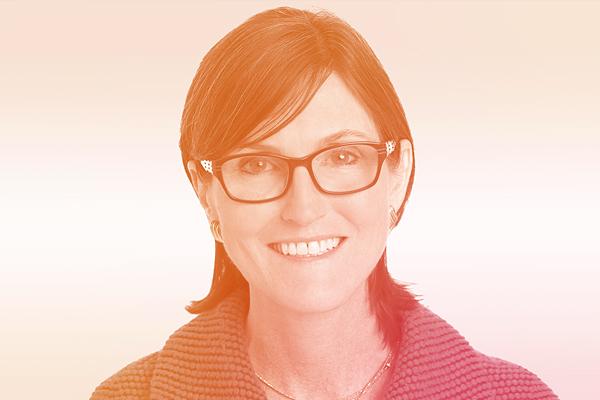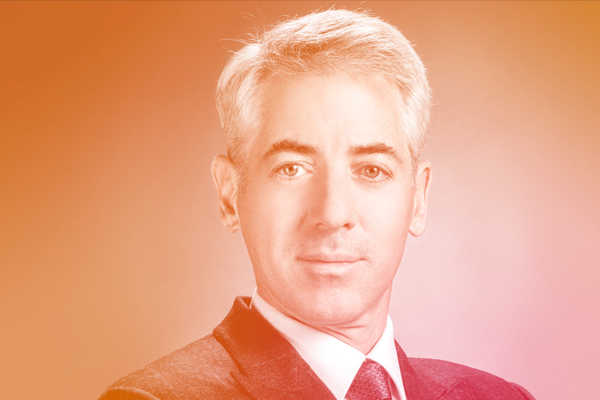
Wall Street hedge fund legend Bill Ackman has praised the Australian superannuation system as a way to bridge the growing income inequality in the US.
The activist investor also sees some potential turmoil ahead with COVID and the US elections but told The Australian in an interview: “By the second half of next year, the world will be meaningfully better.
“We will know who the president of the United States is, and we will hopefully have a widely distributed vaccine and a return to some degree of normalcy, which I think we would all greatly appreciate.”
He added: “The biggest risk to the markets is not whether Trump or Biden is president; it is making sure there is a smooth transition either to the second Trump administration or to the first Biden administration.
“Hopefully we don’t have more civil unrest, more uncertainty, more divisiveness.”
Mr Ackman is described an activist investor who is prepared to intervene to push corporate boards and management to do what is necessary to enhance value.
“Few investors would admit to not being activist any more,” he said.
He will be a guest at the Sohn Hearts &Mind conference on November 13.
“What worries me is that there is a lot of speculation, and valuations for some companies are enormous,” he said.
“At some point in time, interest rates will rise. But equities are still the best investment class.”
He is concerned about inequality in the US, and the growth of index funds and their impact on the market.
In his latest newsletter, he cited the Australian superannuation system as a way to overcome the inequality. His comments contrast sharply with Treasurer Josh Frydenberg and other critics of the super system.
“If capitalism continues to leave behind most Americans, as the growth in wages has not come close to the more tax-efficient compound growth that has been achieved by investing in the stockmarket, more and more Americans will seek changes, potentially radical ones, to the system, or seek an alternative system,” he said.
“Corporations could be required to set aside a fixed per cent of salary or wages in a tax-free investment account for all workers that would also be restricted from withdrawal until retirement, similar to the approach used by the highly successful and popular Australian superannuation system,” he wrote.
“The system has created savings of scale for growing generations of its citizens. Since the superannuation system’s launch in 1991, Australia now has $2.7 trillion of super assets — nearly twice the country’s GDP.
“Remarkably, Australia has created the fourth largest pension system in the world, in the 53rd most populous nation.
“In addition to helping all Americans build wealth for retirement, mandatory equity savings accounts for all would encourage greater financial literacy, and, as importantly, give all Americans the opportunity to participate in the success of capitalism,” he added.
“We are entering an era in which we expect the dominant, well-capitalised, great companies that comprise our portfolio to accelerate their growth in market share and profitability over the long term as they effectively adapt to the changes wrought by the virus.
“If there were a stock market index of private, small businesses, it would likely be down 50 per cent or more. Small business failures will make the income inequality problem even worse.”
Mr Ackman’s portfolio includes Restaurant Brands (Burger King et al), life sciences and diagnostics group Agilent Technologies, retailer Lowe’s, Starbucks, Hilton, real estate group Howard Hughes and US government-backed mortgage groups Fannie Mae and Freddie Mac.
Asked why he doesn’t invest much offshore, he said: “We can find 10 interesting things to do in the US. We are better off being close to our investments.”
He noted: “The stockmarket covers big companies, not small companies. The more technologically adept companies are in a better place today because the world is more digital now.
“We look to own large companies which are great businesses and have super durable growth with strong free cashflows and high barriers to entry.
“Index funds were a great invention by Jack Bogle, and they created a vehicle for many people to own equities. But index funds now own 25 per cent of some companies and their increasing control creates governance risks.”
The late Jack Bogle created the Vanguard group in 1974.
The concern is index funds buy stocks based on their inclusion in an index, not their fundamental value.
Ironically, Mr Ackman is hoping index fund buying will help support his company Pershing Square, which is just outside the FTSE 100 index, and help bridge the gap between its net asset value and stock price.
Earlier this year he made $US2.8bn shorting the US market.
“It was one of the most asymmetric, low downside, big upside situations I’ve ever seen,” he said.
“I could not conceive of a scenario where a virus spreading around the world would cause people to be more comfortable about buying corporate credit, and that’s what made it low risk,” he added.
When the market fell Mr Ackman went long.
This article was originally posted on The Australian here.
Licensed by Copyright Agency. You must not copy this work without permission.


In yet another fantastic episode with Equity Mates, first-time conference manager Qiao Ma chats with the guys about her incredible first investment, the investment philosophy of core manager Cooper Investors and the investment thesis behind her conference pitch, Shenzhou International.


NYU Stern School of Business Professor, serial entrepreneur and business podcaster Scott Galloway has blasted “sociopathic” big tech and the US government, while outlining the profound implications of COVID-19 for the US economy and its big players.


Australian investors will be very familiar with potential gains that can be created from innovations in the payment system, think Afterpay. In China, the mobile payments market is both enormous and advanced in technical terms, that’s where Yeahka Ltd operates — a top stock choice from Beeneet Kothari of New York-based Tekne Capital Management at the SOHN Hearts & Minds Investment Conference 2020.


Leading US fund manager Bill Ackman has predicted that 2021 will be a “very good” year for the US sharemarket, with a combination of low interest rates, fiscal stimulus and a new president who will not introduce radical policies.


The rise of telehealth and online medicine as a result of the COVID-19 pandemic has been behind the recommendation of New York based fund manager Cathie Wood, for US based telemedicine and virtual health care company Teladoc Health as her stock pick for the 2020 Australian Sohn Hearts & Minds Investment Conference.


When Bill Ackman realised coronavirus was about to run rife in the West he knew he had to do something fast to protect the $US10bn ($14bn) of assets managed by Pershing Square, much of it in restaurant brands that were vulnerable to the economic lockdowns he saw coming. Rather than sell stock, he opted to hedge via credit default swaps.


Halpert's “digital decolonisation” thesis is that entrepreneurs, companies, governments and consumers in developing markets are reclaiming their digital economies and ecosystems from multinationals, and developing indigenous solutions for local problems.


Billionaire investor Bill Ackman bemoaned his losing bet on Warren Buffett’s Berkshire Hathaway during a virtual appearance at the Sohn Hearts & Minds investment conference this week, according to the Australian Financial Review.


Bill Ackman predicts 2021 will be a rewarding year for the equity market and urged investors to "go long", but the Wall Street legend and Pershing Square founder worries that irrespective of Pfizer's vaccine breakthrough, the US faces a grim winter of coronavirus casualties.


Global stocks exposed to the technology boom, whose performance was partially fuelled by the coronavirus crisis, were the big winners from the calls made by top investment minds at the Sohn Hearts & Minds Investment Conference last year.


Leading US fund manager Bill Ackman has predicted that 2021 will be a “very good” year for the US sharemarket, with a combination of low interest rates, fiscal stimulus and a new president who will not introduce radical policies.


Online retail stocks have become the small cap investment story of 2020, according to Todd Guyot, a portfolio manager with Regal’s $320m Australian Small Companies Fund. “We have done well out of the whole online theme of late,” says Guyot, who will be tipping a stock at the fifth annual Sohn Hearts & Minds conference on Friday.


When Bill Ackman realised coronavirus was about to run rife in the West he knew he had to do something fast to protect the $US10bn ($14bn) of assets managed by Pershing Square, much of it in restaurant brands that were vulnerable to the economic lockdowns he saw coming. Rather than sell stock, he opted to hedge via credit default swaps.


Tekne Capital Management portfolio manager Beeneet Kothari says US technology stocks continue to look attractive given their strong earnings outlook and dominant positioning in what he sees as a multi-decade reshaping of economies and business fuelled by COVID-19.


The shock suspension of the Ant Group initial public offering, slated to be the biggest float in history, has left investors reeling, but it could be back up and running within weeks, according to Tribeca Investment Partners’ Jun Bei Liu.


US tech giants are on track: not just to soar through the pandemic, but to structurally lock in their competitive edge well beyond COVID-19. What is more, there will be a tsunami of reallocated capital across the economy, creating huge winners and losers that investors should get ahead of if they don’t want to miss out.


One of the fiercest critics of 'Big Tech', author and academic Scott Galloway, has admitted his bearish call on Afterpay was wrong and warned that America's internet giants are poised to consolidate power following the coronavirus pandemic.


Scott Galloway, outspoken academic and expert on big tech, says "Jedi mind tricks" and "consensual hallucination" are responsible for some huge market valuations, and warns Silicon Valley giants will entrench their dominance in the post-pandemic world.


It has gone down in Wall Street folklore as one of the greatest trades in history – a $US27 million ($37.8 million) bet during the market meltdown in March that returned $US2.6 billion in the space of three weeks. And the mastermind behind it, New York hedge fund titan Bill Ackman, is now bracing for another bout of turbulence.


Wall Street legend Bill Ackman says megacap stocks such as Starbucks will come out of COVID-19 with a bigger moat and a market dominance like never before, and no election outcome will make a difference to the plight of wrecked small businesses.


A little under a year ago, Cathie Wood named Tesla as her top stock pick for 2020. Speaking at the Sohn Hearts & Minds Investment Leaders Conference in Sydney last November, Ms Wood, who runs US technology-focused investment firm Ark Invest, said her bearish case was that the stock price would double by 2024. It hit that milestone less than three months later.


Rory Lucas may have one of the best jobs in finance. As the chief investment officer of Hearts & Minds Investments (HM1), it's his duty to oversee the $780 million portfolio of the best ideas from some of the world's top investors.


Legendary Wall Street investor Bill Ackman will headline the 2020 Sohn Hearts & Minds investment leaders conference this year in a major coup for the event that has raised more than $20 million dollars for medical research since its inception in 2016.